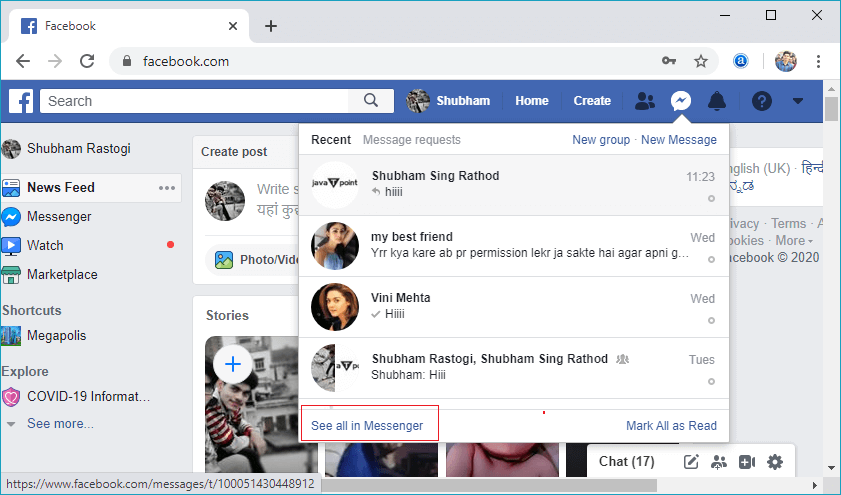

:max_bytes(150000):strip_icc()/006_permanently-delete-facebook-messages-1949525-5bb2ac2e46e0fb0026ebec5a.jpg)

Likewise, a lengthy chapter on “Wxmen in Afrobeats” devotes the first two-thirds to artists who far predate the movement. Indeed, he grounds the book in his own experience as an African living in the UK to underscore the significance of Afrobeats to the children of African migrants there, who no longer feel the need to pretend to be “West Indian,” as the author recounts.īut the book’s substantial attention to earlier examples of African popular music-Afrobeat (with no ‘s’), Highlife, Hiplife, South African pop and jazz-suggests that we should situate Afrobeats more directly in continental currents than diasporic contexts. Adofo doesn’t exactly neglect the importance of the UK as a foundational site for Afrobeats or the ways it has been shaped by Afro-Caribbean and broader diasporic currents. “For the children of African migrants who are fluent in their mother tongue,” Adofo argues, “Afrobeats presents a powerful space.” In this telling, however, the inspiring pan-African character of Afrobeats threatens to eclipse the music’s Afro-diasporic history. While it sometimes falters in focus and falls prey to boosterism, the book bears vivid witness to the importance of Afrobeats for a generation of listeners, especially for Africans in diaspora.Īt base, the story of Afrobeats, and the personal context that Adofo weaves into the book, is about the power of representation: about seeing and hearing African artists being themselves in the world, and therefore feeling seen and heard too. Christian Adofo’s book, A Quick Ting on Afrobeats ( Jacaranda 2022), attempts to narrate this development, mixing a personal archive of listening and dancing in African communities with a journalistic account of particular players in the Afrobeats story. As an industrial force, it is quickly becoming the envy of more established brands like Jamaican dancehall. For some, Afrobeats feels like a homecoming, a new platform for Africans in the modern musical mainstream. With artists from Ghana and Nigeria enjoying unprecedented popularity on the world stage, Afrobeats brims with significance as a watershed for Africa’s place in global pop, with the likes of Burna Boy in the same league as Bad Bunny. Over the last decade musical acts grouped under the Afrobeats banner have built a distinctive musical movement of remarkable reach.


 0 kommentar(er)
0 kommentar(er)
